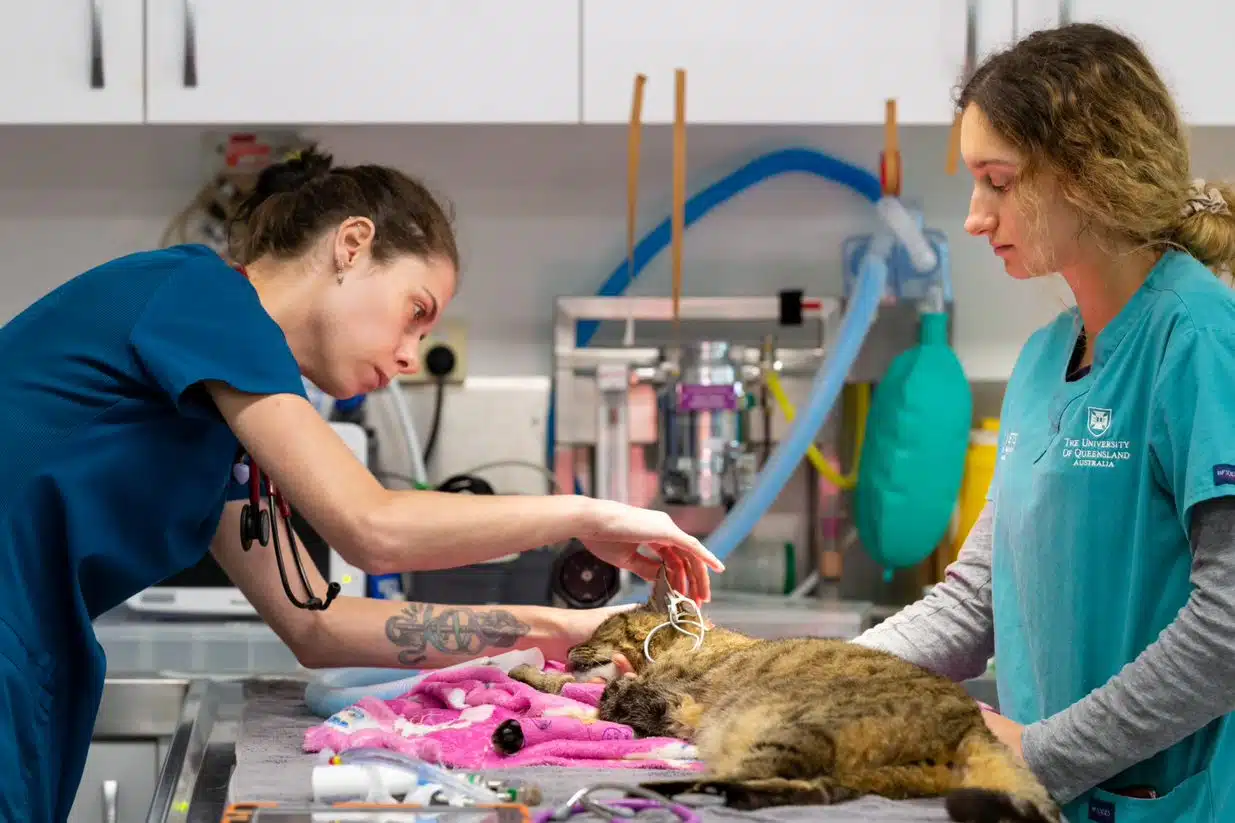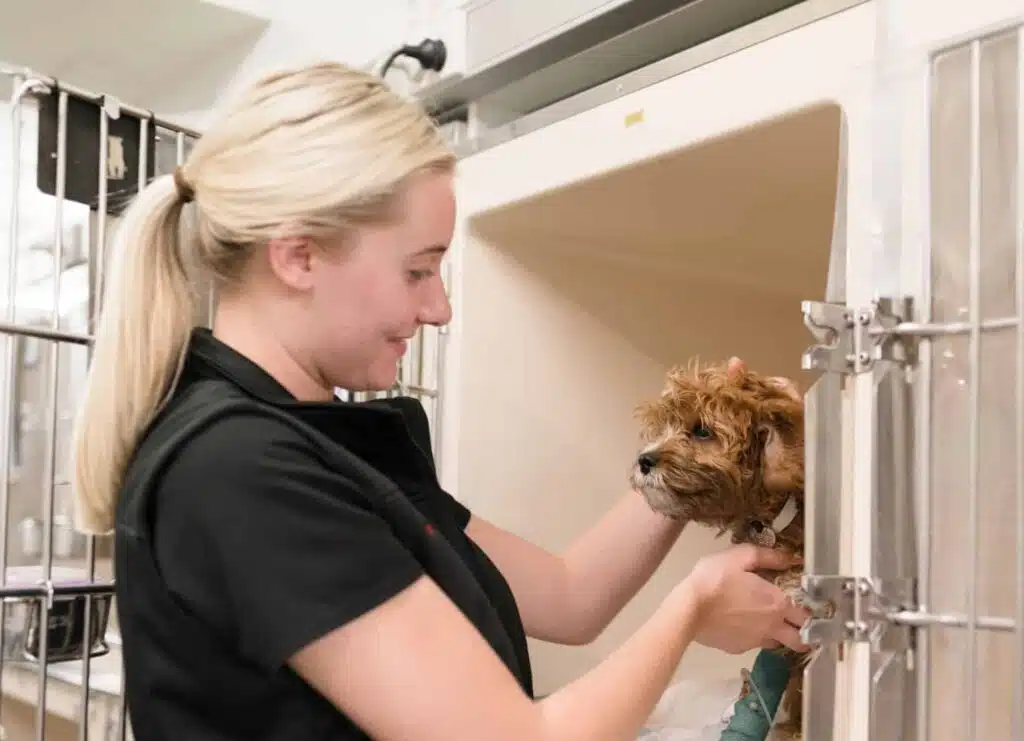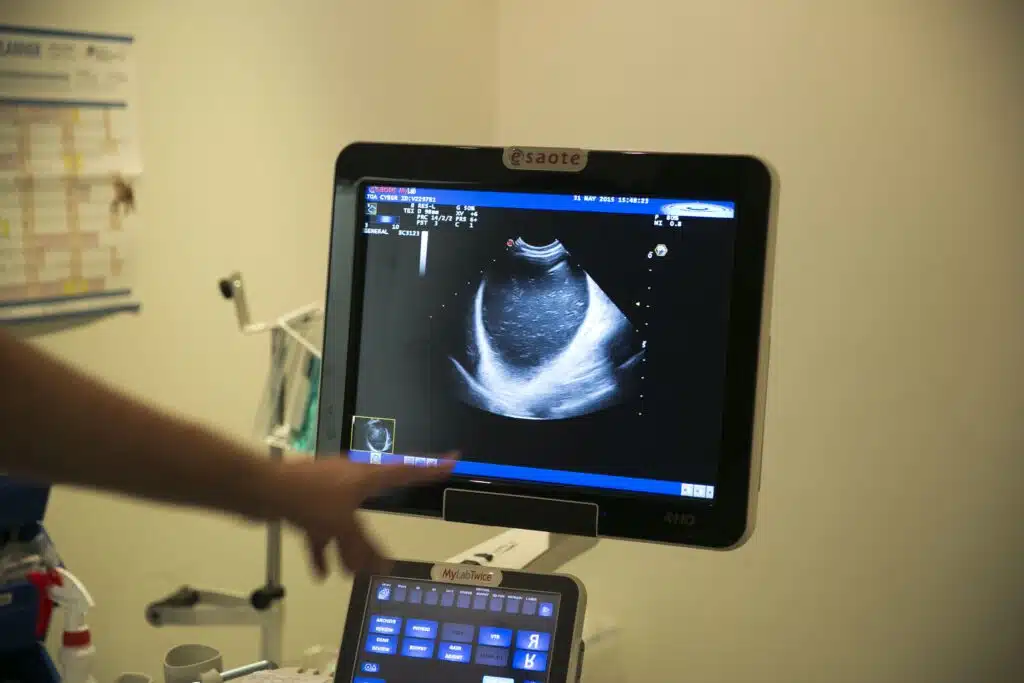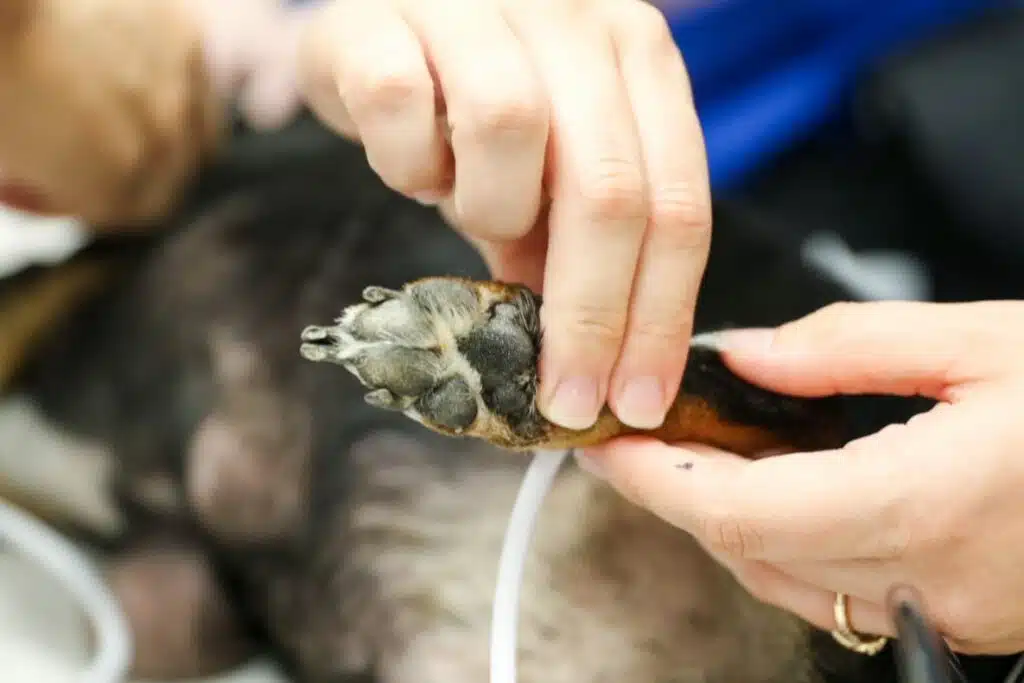Veterinary science is a challenging and rewarding field that requires extensive training and hands-on experience. Final-year clinical placements offer veterinary science students a unique opportunity to apply their knowledge in a real-world setting. This helps you to gain valuable experience and develop your practical skills while putting your clinical knowledge to the test. However, making the most of your veterinary clinical placement requires more than just showing up and observing. Successful veterinary clinical placement really does require active effort on your part.
To truly benefit from your placement, you need to be proactive, make sure you set goals, seek feedback from experienced veterinarians, and build lifelong connections with other veterinary professionals. In this article, we will explore five strategies that can help you get the most out of your veterinary clinical placement. We’ll help prepare you for a successful career in veterinary science so you can enter the profession with the confidence and skills you need to succeed.
How to get the most from veterinary clinical placement:
Get Involved and Hands-On
Getting involved and hands-on during your clinical placement is an essential part of gaining valuable experience and developing your skills as a veterinary professional. This means taking an active role in the day-to-day activities of the clinic and seeking out opportunities to practice your clinical skills under the guidance of experienced professionals.
Here are some tips on how to get involved and hands-on during your clinical placement:
Volunteer for tasks: Don’t be afraid to offer your help with tasks around the clinic. This could include tasks such as helping with patients, assisting in procedures, or even administrative tasks like unpacking orders. By volunteering for tasks, you can show your willingness to learn and contribute to the clinic’s operations.
Observe procedures: Take the time to observe procedures and surgeries being performed by experienced veterinary professionals. This will give you a better understanding of the techniques and equipment used in veterinary practice.
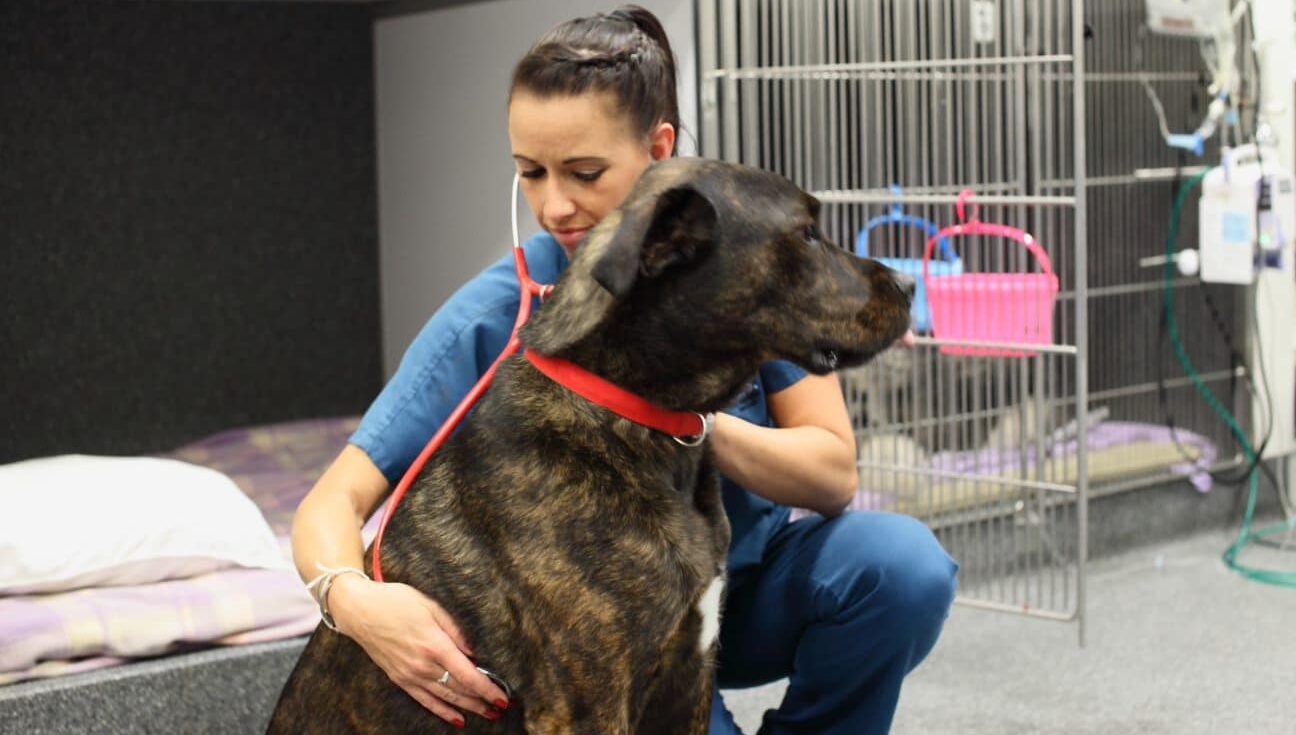
Ask questions: Don’t be afraid to ask questions about the procedures you observe. Asking questions will help you understand the rationale behind the techniques used, and it shows your mentor that you are interested in learning.
Seek out opportunities to practice your skills: Ask your mentor or supervisor for opportunities to practice your practical skills. This could involve scrubbing in during surgeries, administering medications, or performing physical examinations under their guidance. This will give you the chance to apply what you have learned in a real-world setting.
Be proactive: Take the initiative to identify areas where you can contribute and learn. If there is an interesting case that you would like to observe or assist with, ask your mentor if you can get involved. Be proactive in seeking out opportunities to learn and grow.
Set Yourself “SMART” Goals During Veterinary Clinical Placement
Setting SMART goals is a crucial part of getting the most out of your clinical placement. SMART goals are Specific, Measurable, Achievable, Relevant, and Time-bound. Setting SMART goals helps you focus your efforts, track your progress, and measure your success. Here are some ways to ensure your goals during your clinical placement are SMART:
Specific: Set goals that are clear and well-defined. For example, instead of setting a goal to “improve my clinical skills,” set a goal to “improve my ability to perform a physical examination of a cat.“
Measurable: Ensure that your goals are measurable so that you can track your progress and measure your success. For example, set a goal to “perform three simple surgeries during placement without assistance from my mentor.“
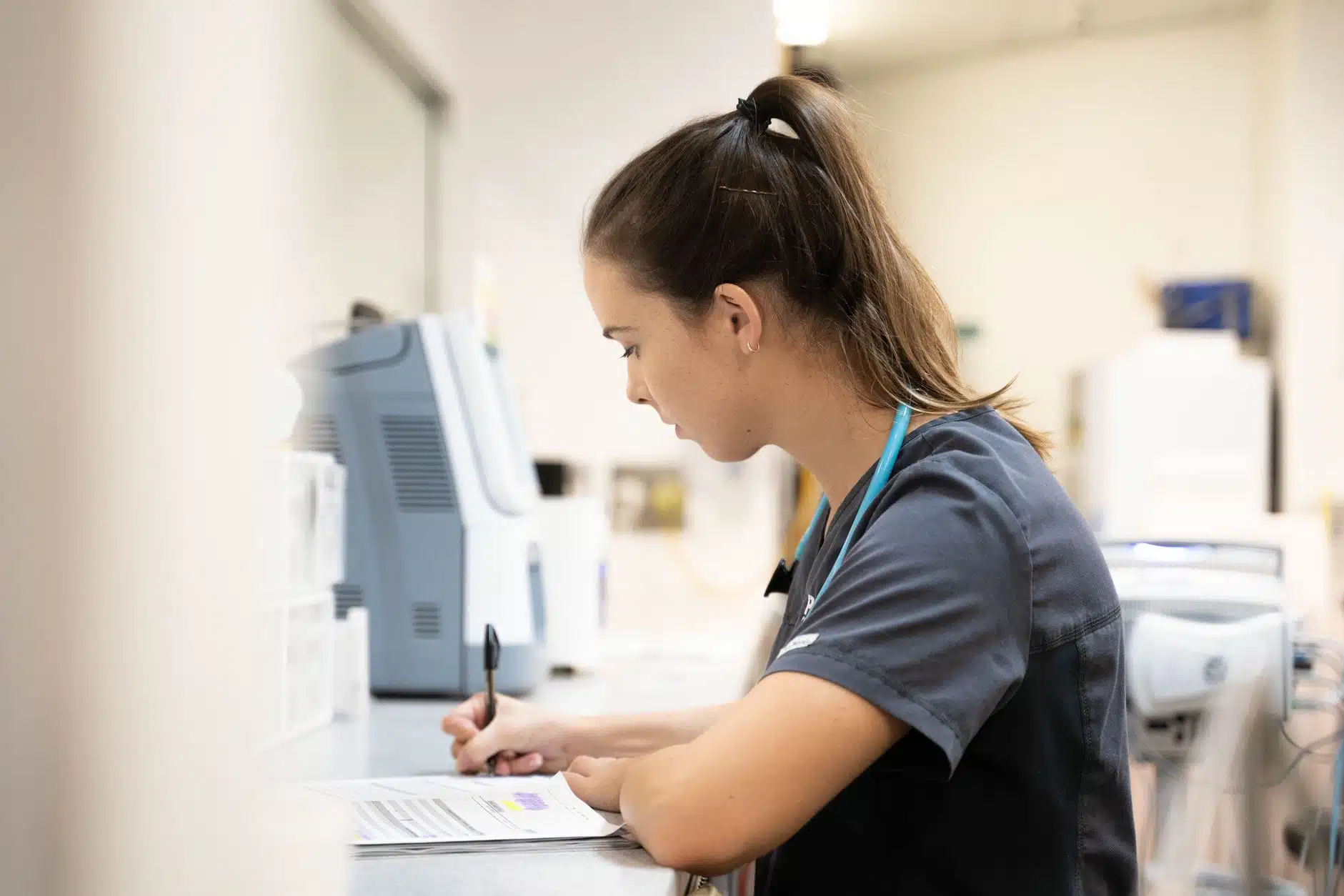
Achievable: Set goals that are challenging but achievable. Avoid setting goals that are too easy or too difficult. For example, if you have never performed a desexing, it may not be achievable to set a goal of performing one independently within the first day of your placement.
Relevant: Ensure that your goals are relevant to your clinical placement and your career goals. For example, if your goal is to work in small animal practice, it may not be relevant to set a goal of improving your skills handling horses or cattle.
Timely: Set a timeframe for achieving your goals. This will help you stay focused and motivated. For example, set a goal to “improve my ability to perform a physical examination of a cat by the end of the second week of my placement.“
Lastly, make sure to review your goals regularly and adjust them as necessary. If you achieve a goal early, set another goal to improve upon the skills you’ve developed. This will depend on the length of your veterinary clinical placement. If you’re on placement for a week, you may only have one or two goals. Longer clinical placement may benefit from an entire set of goals that you can break down into smaller sub-goals.
Ask for Feedback From Your Clinical Placement Supervisor
Proactively asking for feedback is an important strategy to help you get the most out of your clinical placement. Feedback helps you identify areas for improvement, gain insight into your strengths and weaknesses, and make adjustments to your learning during clinical placement.
Here are several ways that you can proactively ask for feedback during your clinical placement:
- Be open to feedback: Be open-minded and receptive to feedback. Feedback is an opportunity to learn and grow, even if it may be difficult to hear at times.
- Seek feedback regularly: Don’t wait for your mentors or supervisors to offer feedback. Proactively seek out feedback by asking for it regularly. You can ask for feedback after completing a task or procedure, or at the end of a day or week.
- Ask specific questions: Instead of asking for general feedback like “How am I doing?“, ask specific questions such as “Can you give me feedback on my surgical technique?“, or “What can I do to improve my communication with clients?“.
- Act on feedback: When you receive feedback, take it seriously and act on it. This shows your mentors and supervisors that you value their input and are committed to improving.
- Thank your mentors and supervisors for their feedback: Thanking your mentors and supervisors for their feedback shows your appreciation for their time and expertise. It also helps build positive relationships with them.
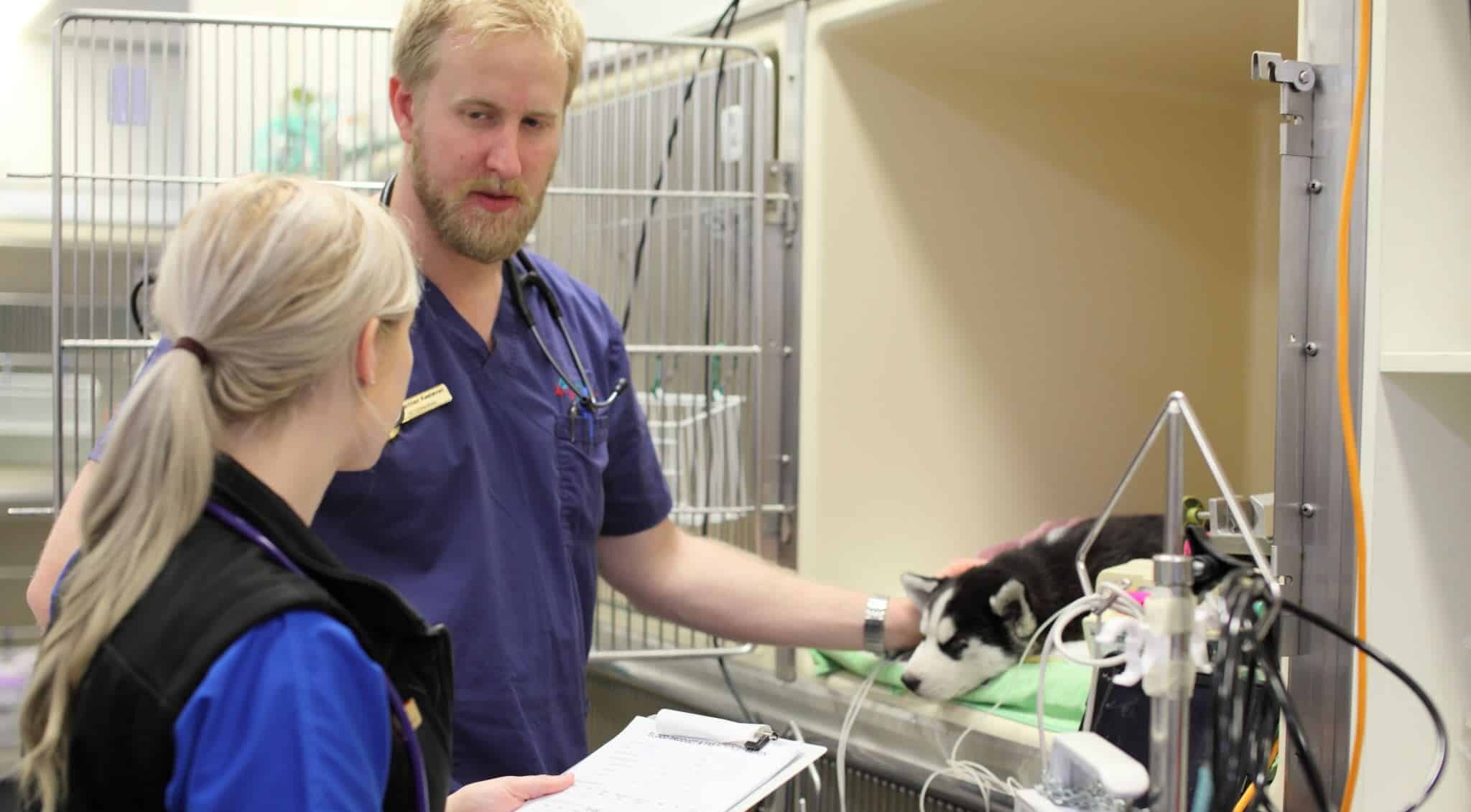
In summary, proactively asking for feedback is an important strategy to help you get the most out of your clinical placement. Feedback is a gift that provides valuable insight into your performance and adjustments to your learning in clinical practice. To find out more about veterinary feedback, explore our guide on getting the most out of feedback for additional advice during your veterinary career.
Learn from Mistakes That You Make During Veterinary Clinical Placement
Learning from your mistakes is an essential part of any clinical placement. Mistakes can be a valuable learning opportunity if approached with the right mindset. It’s completely normal to make mistakes – no veterinary professional is perfect. In fact, it’s through making mistakes that you can rapidly improve.
Firstly, be honest with yourself and acknowledge when you make a mistake. Don’t try and hide or dismiss it – recognising your mistakes is the first step in learning from them. Then take the time to reflect on your mistakes and analyse what went wrong. Try to identify the root cause of the mistake and think about how you can prevent it from happening again. Approach your mentors and supervisors for feedback on your mistake. They may be able to offer additional insight or guidance on how to improve, as they’ve been in your situation before too.
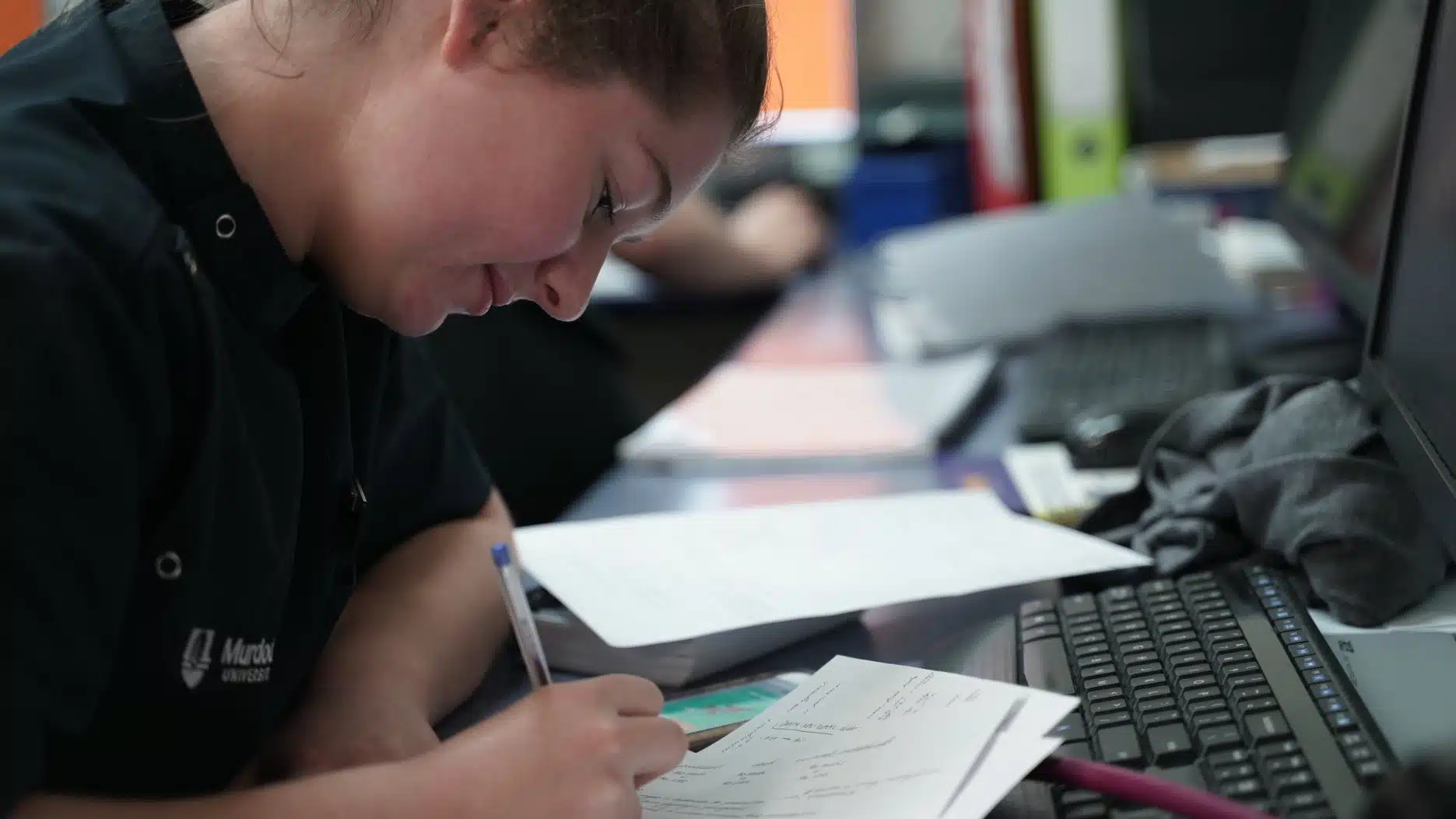
Once you’ve identified the cause of the mistake, develop a plan for improvement. This may involve practising a specific skill or seeking additional training or guidance. Make sure to put your plan into action and practice the skills or behaviours you need to improve. This will help you develop new habits and prevent similar mistakes from happening in the future.
And finally, don’t dwell on your mistakes, which is something many of us are guilty of. While it’s important to learn from your mistakes, it’s also important not to know when to leave them behind and instead focus on what you can do to improve and move forward. By doing this, you can turn a mistake into a valuable learning opportunity and improve your veterinary skills rapidly.
Make Lifelong Connections
Our final topic is arguably the one that has the potential to make the biggest lasting impact during your entire veterinary career: connections. By focusing on making lifelong connections during your clinical placement, you’ll be benefitting both professionally and personally. The veterinary profession is all about networking, and those you know have the potential to lead to many incredible opportunities.
Even though you’re there to learn during your veterinary clinical placement, be open and friendly with everyone you meet. From your mentors and supervisors to your fellow students and staff members – even clients too! Smile, introduce yourself, have meaningful conversations, and make a genuine effort to get to know people.
If you have the opportunity, be sure to attend any events or social gatherings organised by your clinical placement. Making an effort to network with other professionals in the field early on in your career can be a great way to make connections and build relationships that may be valuable in the future.
If you’re lucky enough to find a veterinary mentor who you connect with and admire, don’t be afraid to ask them for mentorship or guidance. They may be able to offer valuable insights into your career and help you navigate the field once you graduate. After your clinical placement ends, make an effort to still stay in touch with the people you met. This can be as simple as sending an email to check in or connecting with them over LinkedIn.
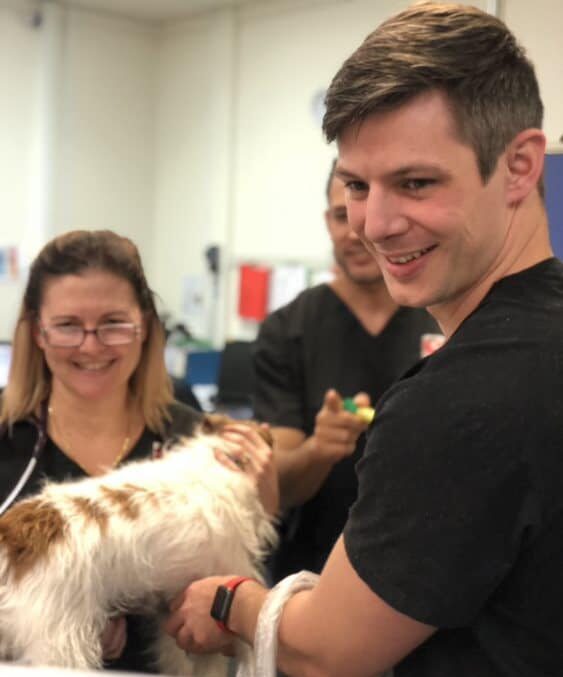
And lastly, if you have the opportunity to return to your clinical placement locations in the future, don’t hesitate to drop in. Doing so will help you stay connected and give back to the clinic that helped shape your career. It may also help you stay front of mind for any possible career opportunities that arise when you graduate.
In conclusion, your clinical placement is a valuable opportunity to gain hands-on experience and learn from professionals in the field. By making the most of your clinical placement through the ways we’ve discussed, you can ensure that your final year at university is able to set yourself up for a successful career in veterinary science.
Remember to approach your clinical placement with an open mind and a willingness to learn, and take advantage of every opportunity that comes your way. With hard work and dedication, you can make your clinical placement a truly transformative experience that sets you on the path to achieving your veterinary career goals. And if you’re wanting to advance your clinical skills, be sure to explore clinical placement opportunities in emergency and critical care with Animal Emergency Australia.

